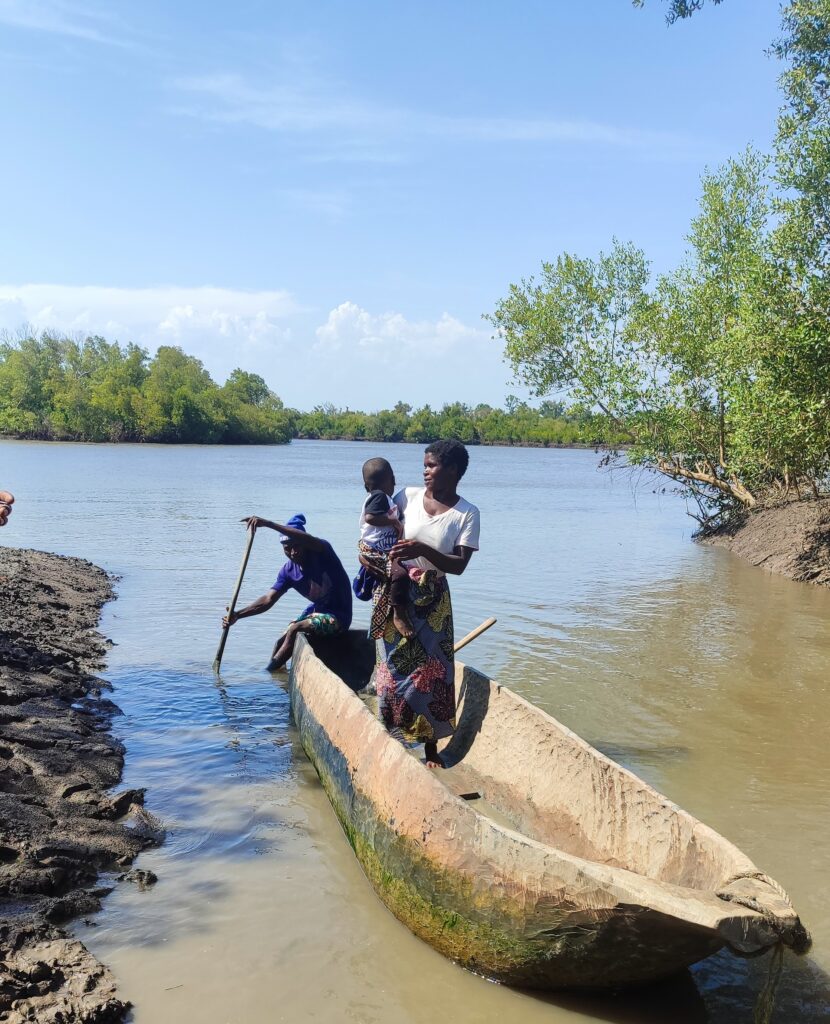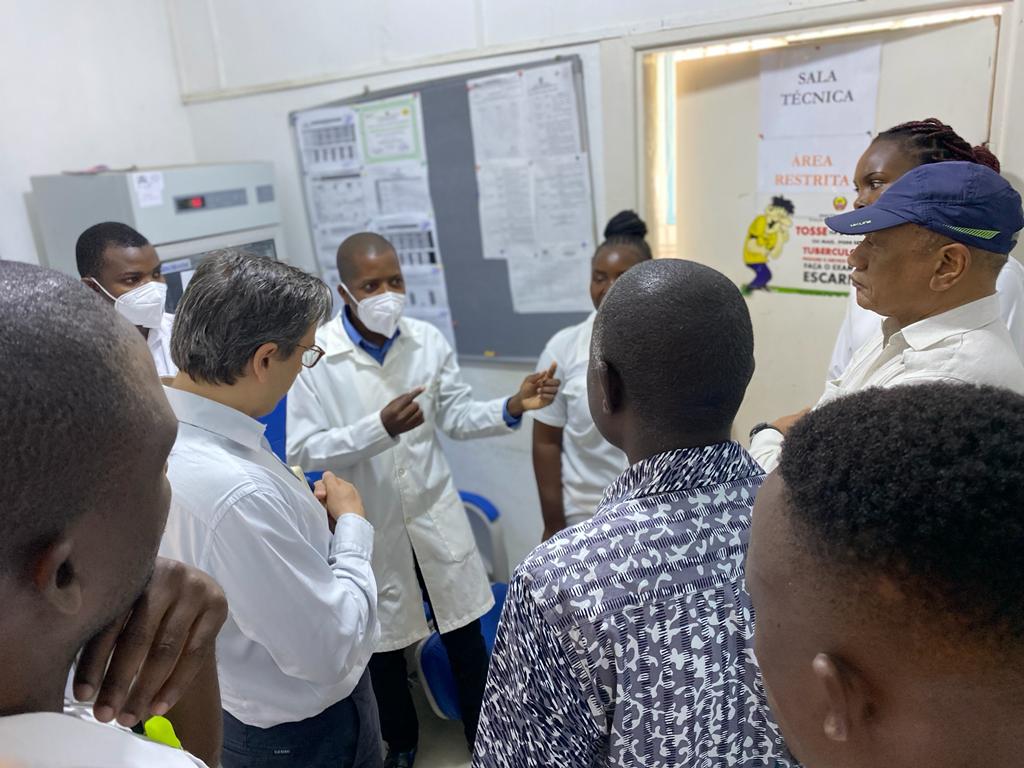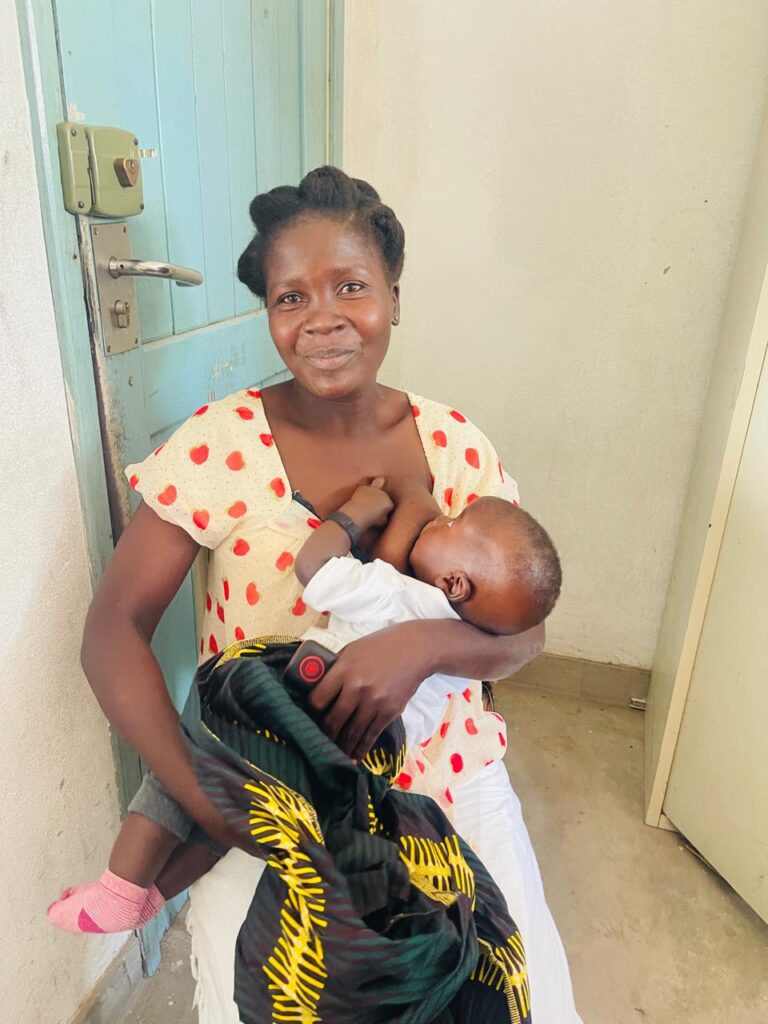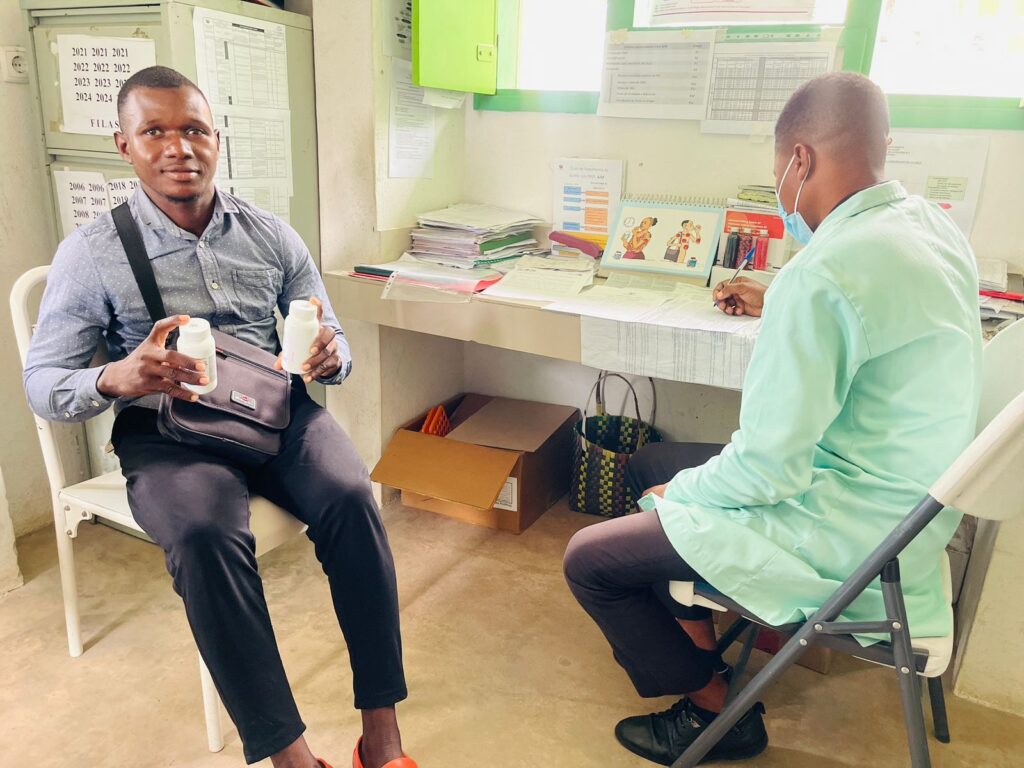High waters and makeshift canoes often stood between Rosinha Eugénio and the vital care she needed. Yet, in a remote corner of Zambézia province, her resolve proved stronger than the current that threatened to keep her isolated—this is the story of a mother’s unwavering fight for her family’s health.
Rosinha is a 35-year-old single woman from Namacurra district in Zambézia province who lives on the remote island of Marroda, in the locality of Mbaua. She is the mother of four children, two of whom, Milagre (13) and Tércia (11), are also living with HIV. From an early age, Rosinha faced the harsh reality of geographical isolation and limited health information. The nearest health facility was located on the other side of a river that had to be crossed in improvised canoes. This perilous and exhausting journey proved a constant obstacle for anyone seeking medical care. Growing up without guidance on disease prevention and treatment, Rosinha saw her vulnerability turn into a concrete challenge in 2011 when, pregnant with her first child, she was diagnosed with HIV. The impact of the diagnosis was overwhelming. Unable to accept her condition, Rosinha stopped her antiretroviral treatment while continuing her pregnancy follow-up at the maternal and child health services.
Frequent rains in her district caused the river’s flow to increase, making crossing even more difficult, and the lack of alternative access routes kept her away from the health facility. Without adequate prenatal care, Milagre was born with HIV. Two years later, history repeated itself. During her second pregnancy, Rosinha avoided HIV mother-to-child transmission prevention services. Despite counseling from health professionals, she continued missing clinical appointments, resulting in long periods without medication. Consequently, her second child, Tércia, was also diagnosed with HIV.
Over time, Milagre’s health deteriorated. He suffered from constant diarrhea, slow growth, and poor appetite—warning signs that Rosinha could no longer ignore. In desperation, she turned to traditional medicine, but it yielded few results; Milagre continued to fall ill. “I couldn’t sleep anymore. I felt guilty for not following the health facility’s advice,” Rosinha recalls. The weight of her guilt was enormous but change still seemed out of reach—until the day she crossed the river and met a team of community health workers.
These workers were organizing a community mobilization event, where talks on HIV prevention and treatment were given. Motivated, Rosinha decided to approach one of them, informing him about her child’s illness. The community health worker offered to visit her at home and accompany her to see the child. “That gesture changed everything for me. I realized I wasn’t alone and that I could fight for my children’s lives,” says Rosinha. Seeing the child’s condition, the worker promised to support her so that she and her child could visit the health facility the next day. Without hesitation, Rosinha accepted the help and went to Mbaua health facility, where the worker was waiting for her.
Rosinha and her child were received at the health facility and, because of their poor adherence to treatment, were enrolled in Enhanced Adherence Counseling (EAC) for three months. This strategy focuses on patients on ART who frequently miss appointments, interrupt treatment, or have uncontrolled viral loads. During the first EAC session, a team of health professionals including a psychologist, a clinician, and a peer educator—assessed the underlying reasons for Rosinha’s recurrent treatment interruptions. The main obstacles identified were transport barriers, distance, and psychosocial difficulties, which led to a personalized plan to reintegrate Rosinha into HIV care.
Milagre and Tércia, underwent a clinical evaluation, checking for HIV-related illnesses. That same day, the children were integrated into antiretroviral therapy (ART) services. Rosinha received ART medication for the three of them, as well as a nutritional support plan for her children. To ensure her family’s continued access to ART, a mentor mother was assigned to provide community support and prevent further treatment interruptions. For the first time, Rosinha felt empowered to face her condition and ensure that her children received the care they needed.

However, the road to recovery was not without obstacles. On one of their trips to the health facility, the canoe carrying Rosinha, Milagre, and Tércia capsized in the river. The three were rescued by the community, but the trauma lingers. Still, Rosinha never gave up. “The fear was immense, but my love for my children is stronger. I can’t give up,” she says firmly.
Health professionals continued to monitor Rosinha and her two children regularly, ensuring they followed the treatment plan. Supported by her family and her mentor mother, Rosinha managed consistent access to medication. Over time, Milagre and Tércia’s health stabilized, allowing Rosinha to reduce her health facility visits. She began receiving medicines for herself and her children every three months, which greatly helped life in such a remote location.
Thanks to the improvements in their health, Rosinha and her children began participating in mobile brigades organized in her community—an effective solution for clients living in remote areas. Determined to change her future, Rosinha remained steadfast in her treatment and had two more children, both born HIV-free.
Community mobilization and mobile brigades promoted by the district health authorities in Zambézia province, in partnership with C-Saúde and funded by PEPFAR, were instrumental in transforming Rosinha’s life. “When health providers come to us, we feel our lives are valued. It’s a huge relief for many families,” she explains.
Today, Rosinha Eugénio is more than just a health service user. She is a leader in her community, an inspiration to other women, and living proof that love and resilience can overcome even the greatest adversities. Her story clearly demonstrates that, with community support and determination, it is possible to create a future filled with health and hope.




